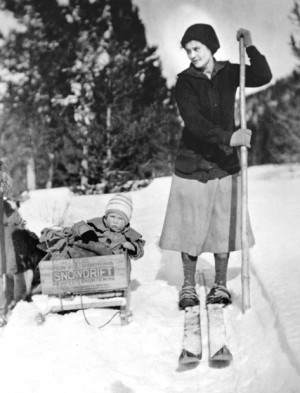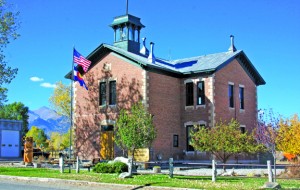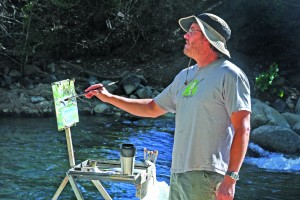by Jeff Osgood
The old man rose from his lawn chair, walked to the bank of Medano Creek, faced the buckskin rises of Great Sand Dunes National Park, and began to quote scripture. He flawlessly recited words about water coming to a dry land, life coming from a place of death, all through the divine will of The Almighty. His family, kids and adults alike looked on, rapt. Other onlookers appeared puzzled, some even mildly disturbed by the impromptu sermon. When finished, the man returned to his chair and went back to watching kids splash in the spring runoff of the Sangre de Cristo Mountains. His words drifted off with the ever-pervasive winds of the San Luis Valley and the people who heard them were left to return to their own thoughts and distractions.
Now, if the old man wanted to erect the Ten Commandments on that spot, there would have been trouble. Problems arise when folks who are moved by scenery, place, and convictions take non-ephemeral approaches to getting their message out. In recent months the United States Supreme Court has come to deal with one such problem in a sun-burnt spit of the Mojave Dessert. Back in 1934, members from the Veterans of Foreign Wars placed a cross to memorialize fallen soldiers of World War I at Sunrise Rock, inside the bounds of the Mojave National Preserve in California. Some didn’t take too kindly to a Christian symbol on public lands and got the courts involved. After almost a decade of legal badminton, the highest court in the land ruled in April 2010 that the cross could stay. Within a few weeks, someone went out to the cross under the cover of darkness, plucked it from its perch, and spirited it away. A replacement cross was not covered by the legal ruling so, for now, Sunrise Rock sits unadorned.
A similar skirmish unfolded on a mountaintop in Summit County, Colorado. Shortly after the terror attacks of September 11, 2001, an American flag appeared atop Peak 1 overlooking the small town of Frisco. The nation was awash in patriotism and how better to show your pride than by planting Old Glory at 12,933 feet for all to see? But one person’s patriotism is another’s jingoism and the flag was covertly burned down one night by an anonymous dissenter. Angered, but not dismayed, someone re-erected the flag on the same spot.
These are just some of the more recent melees that have come from people moved by place, but history and lore reveals a pattern. Mythology and world religions are full of sacred mountains and deserts trammeled by gods and wandering prophets. Think Moses on Mt. Sinai, Gilgamesh in the Persian Desert, Shiva at the peak of Mount Kailash, or even the less divine John Denver catching a Rocky Mountain High while he talks “to God and listens to his casual reply.” The sublime beauty of high country and the humbling hardness of the desert exhaust rational descriptors and are quickly tagged with mystical qualities. In some cases, sacred places become spots for peaceful pilgrimages. In other cases, groups have waged and still wage war in the name of “holy” land.
It’s no wonder then that some folks want to share what they’re experiencing or feeling when they reach a summit or come to an overlook.
But where does that sharing cross the line from euphoric testimonial to proselytizing? Is it fair to reach a peak and take in a knee-weakening panorama only to have emotions and thoughts steered by a religious or national symbol?
I find it difficult to endorse stealing a cross or burning the American flag, but I want to find nothing more on a mountaintop than a summit register. The very essence of a desert or a peak’s power comes from the absence of the symbols and trappings of everyday life. In its raw form, places like the Mojave Desert and the Colorado high country have a power to silence the most loquacious of people and give the most harried mind a chance to calm itself. In such a place, you can’t blame people for wanting to share their passions. But instead of sticking my beliefs in the ground, I prefer the method of the old creek-side preacher at the base the Great Sand Dunes. Have your say, express your bliss, deliver a brief sermon on the mount, if that’s your fancy. Then let the wind carry it away.
Jeff Osgood writes from Colorado’s Front Range and was nowhere near any recent flag-burnings in that area. Read more of his stuff at www.jeffosgood.com.



